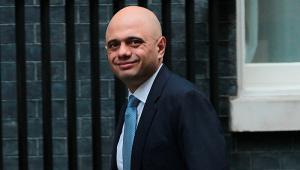Javid used his maiden Spending Round to announce that austerity had ended with a £13.8bn package of extra spending, echoing an announcement made by former prime minister Theresa May last October.
The funding represents the “the fastest increase in spending in 15 years,” the chancellor stated, and claimed that he was doing so within existing fiscal rules around borrowing.
“Every single government department has had its budget for day-to-day spending increased at least in line with inflation. That is what I mean by the end of austerity,” he said.
Paul Johnson, director of the Institute for Fiscal Studies think-tank, noted that while spending in all departments was protected, many were still below 2010 levels.
All areas of public service spending protected or rising next year. But new @TheIFS analysis shows spending in many areas - justice, home office, local government - still well below 2010 levels. Big contrast with health pic.twitter.com/9uRbJOxAAV
— Paul Johnson (@PJTheEconomist) September 4, 2019
Johnson noted that local government had “for once” been among the winners, having had core spending power increased by £2.9bn in total in 2020-21. This represents a rise of 6.3% from £46.2bn last year to £49.1bn in 2020-21.
Roughly half of this total comes from a funding package put forward by Javid as he announced that, for 2020-21, councils “will have access to new funding of £1.5bn for social care”.
A total of £1bn will be shared between adult and children’s social care, with the remaining £0.5bn of the package being contingent on a consultation for a 2% adult social care precept for councils to use.
Julie Ogley, president of the Association of Directors of Adult Social Services, said the statement offered “clarity” for next year but also expressed disappointment about the amount.
“It is not as much as we and others have set out is needed and we will want to understand the detail, including how this fits with other funding for local government and the NHS,” she added.
James Jamieson, chair of the Local Government Association, said: “This is the biggest year-on-year real-terms increase in spending power for local government in a decade and will allow councils to meet the rising cost and demand pressures they face in 2020-21.”
But Jonathan Carr-West, chief executive of the Local Government Information Unit, was quick to highlight the impact of years of cuts.
He said: “While it’s true that local government has seen its biggest spending increase in a decade, the chancellor should not expect too many plaudits from councils across the country. This additional money does not undo a decade of cuts that bled councils dry.
“In terms of clarity about how local government is to be funded sustainably in the future, we are no clearer today than we were yesterday. We still don’t know the outcome of the Fair Funding Review. We still don’t know how business rate retention will work.”
Former communities secretary Javid announced a further £3.6bn for the new Towns Fund, to “provide a wave of investment to out regions and places”.
He also outlined £600m for the Welsh government and £400m for Northern Ireland in what he called “the biggest spending settlement for a decade” for the devolved regions.
There was no mention of any new money for housing but the chancellor did unveil a £54m package to “reduce homelessness and rough sleeping”.
Javid also unveiled a new £200m cash injection to “transform bus services around the country”.
Don Peebles, head of policy and technical at CIPFA, said of the Spending Round: “This announcement is certainly a welcome first step but appears to represent a substantial increase in government borrowing and does little to put funding for public services on a sustainable footing for the long-term.”
Javid was rebuked twice during his statement by speaker of the house John Bercow for tangential references to Brexit, which he called “immaterial to the statement”.











